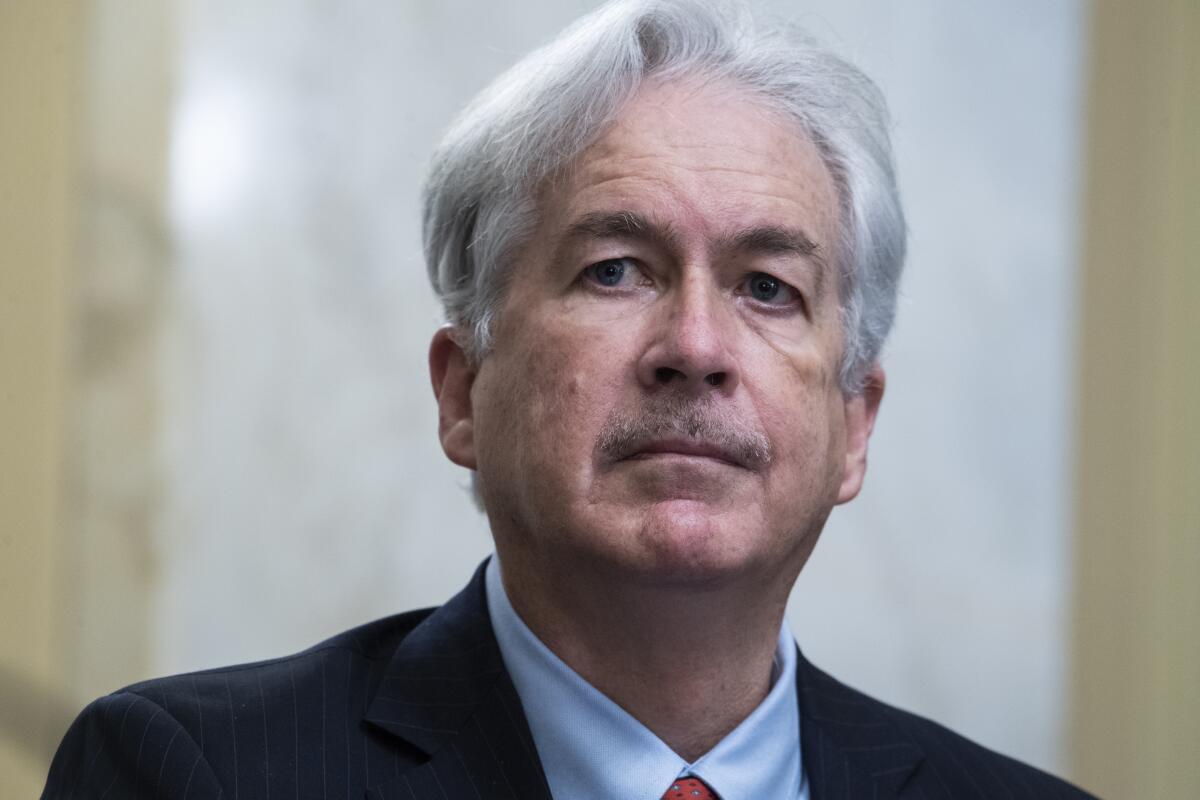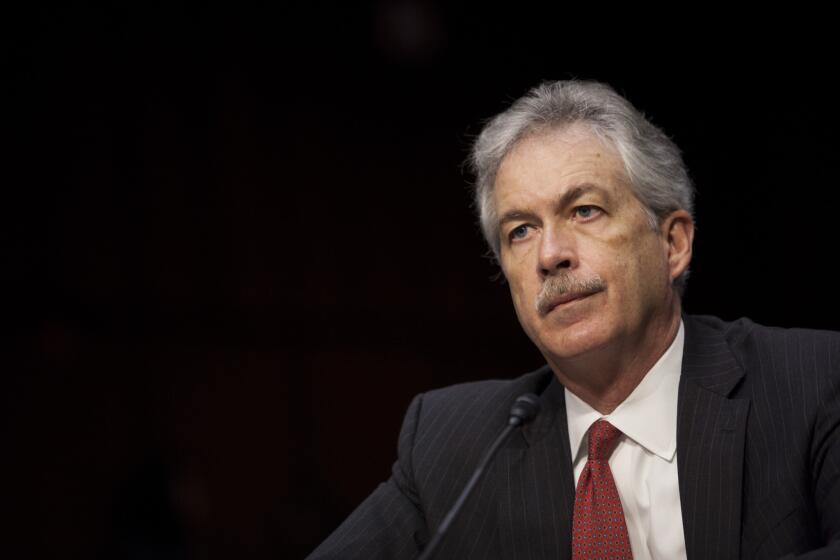Biden’s CIA nominee vows to keep politics out of the job, provide ‘unvarnished’ intelligence

- Share via
WASHINGTON — President Biden’s nominee to run the CIA told lawmakers Wednesday that he would keep politics out of the job and deliver “unvarnished” intelligence to politicians and policymakers even if they didn’t want to hear it.
“I’ve learned that politics must stop where intelligence works begin,” William Burns told members of the Senate Intelligence Committee. “That is exactly what President Biden expects” of the CIA.
Burns said the first thing Biden told him when he asked Burns to take the post was that he wanted the agency to “give it to him straight, and I pledged to do just that and to defend those who do the same.”
The comments from Burns appeared aimed at drawing a contrast with the prior administration, when President Trump faced repeated accusations of politicizing intelligence while also publicly disputing the assessments of his own intelligence agencies, most notably about Russian election interference.
Burns, a former ambassador to Russia and Jordan who served at the State Department for more than 30 years under both Democratic and Republican presidents, is well-known in diplomatic circles and appears headed for a smooth confirmation.
William Burns, chosen by Biden to head the CIA, built a 33-year career at the State Department under both Republican and Democratic presidents.
He acknowledged that the diverse array of international threats — including from an “aggressive” Russia and “predatory Chinese leadership” — was different from what he encountered when he first entered government service and even from the years immediately after the Sept. 11 attacks.
Burns said the “biggest geopolitical test” the country faced was coming from China, which in recent years has staged elaborate influence operations inside the U.S. and carried out hacks with the purpose of stealing American intellectual property. Still, he said, there may be room for cooperation with Beijing in areas such as climate change and nuclear nonproliferation.
He said that though Russia was in many ways a declining world power, the country remains a disruptive and potent threat.
“As long as Vladimir Putin is the leader of Russia,” he said, “we’re going to be operating within a pretty narrow band of possibilities, from the very sharply competitive to the very nastily adversarial.”
A recent hack of corporations and U.S. government agencies believed to have been the work of that country laid bare the perils of underestimating the Kremlin and served as a “very harsh wake-up” call about the vulnerabilities of supply chains and critical infrastructure, he said. The Biden administration has said it plans to respond to those intrusions in weeks rather than months.
“I think it’s essential for the CIA in particular to work even harder to develop our capabilities to help detect these kind of attacks when they come from external players, from foreign players.”
On Iran, another persistent U.S. adversary, Burns said Tehran could never be trusted with a nuclear weapon.
Under questioning from Sen. Dianne Feinstein (D-Calif.), Burns said he believed waterboarding, a technique that was part of the CIA’s interrogation and detention program for suspected terrorists captured after Sept. 11, 2001, was “torture.” He said the practice would “never again be used” by the CIA but also said he did not believe the agency should take action against employees who had used the tactic under Justice Department guidelines.
More to Read
Get the L.A. Times Politics newsletter
Deeply reported insights into legislation, politics and policy from Sacramento, Washington and beyond. In your inbox twice per week.
You may occasionally receive promotional content from the Los Angeles Times.










